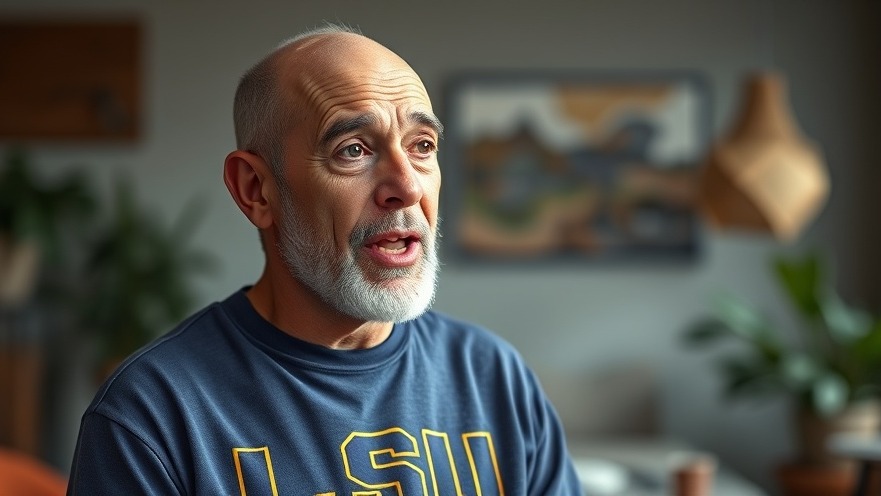
The Democrats' Disconnect: A Wake-Up Call for Inclusivity
In an era marked by political polarization and social divisiveness, James Carville's recent commentary serves as a significant warning for the Democratic Party. Carville, a seasoned strategist, criticized Democrats for abandoning their traditional working-class base to cater to a "too cool for school" coalition. His remarks resonate with a growing sentiment among many that the party has lost touch with the very people it once represented.
Carville's observation highlights a fundamental issue: the Democratic Party has leaned heavily into a narrative designed more for liberal elites than for the concerns of average Americans, particularly white working-class voters. By prioritizing the interests of high-income individuals over the needs and struggles of laborers, the party risks alienating a crucial demographic that historically supported it.
Understanding the Working-Class Perspective
The working class—comprising individuals from various ethnic backgrounds and communities—faces unique challenges. Economic inequality, job insecurity, and rising living costs have created a landscape where many feel they have been left behind. This demographic's needs are often overlooked in favor of broader social issues that appeal to wealthier voters. Carville's call for a reevaluation of the party's priorities prompts a necessary discussion about inclusivity and accessibility in political dialogue.
For many in the working class, feelings of disillusionment stem from the perception that their voices are not being valued. Carville's words challenge Democrats to reconsider how their agenda aligns with the everyday realities of these voters.
A Parallel Example: Historical Shifts in Party Alliances
One could draw parallels between today’s Democratic Party and historical shifts that have occurred throughout U.S. political history. For instance, during the late 20th century, the Republican Party made substantial inroads into traditionally Democratic voting blocs by emphasizing fiscal conservatism and appealing to social values. The Democrats now face a potential loss of their base if they do not actively engage with and address the concerns of the working-class voters.
Understanding these shifts provides insight into how rapidly changing political landscapes can lead to significant electoral repercussions. Carville's warning is not merely anecdotal; it's a lesson from the past that underscores the importance of economic security and workforce empowerment in shaping political loyalty.
Future Predictions: What Could Happen Next
As the 2026 elections loom, the Democratic Party's approach to its voter base could significantly impact its future success. Should the party continue to disregard the voices of working-class individuals, we may witness a greater fracturing of the coalition that has historically united voters under the Democratic banner. It’s crucial that Democrats reconnect with these constituents, addressing their concerns through policies that resonate.
Moreover, failing to engage effectively could lead to a surge in third-party movements or increased support for more radical platforms as disillusioned voters seek alternatives. Carville’s remarks suggest an urgent need for the Democrats to reassess their strategies and engage in dialogue that demonstrates an understanding of working-class issues.
The Role of Media and Public Discourse
Media coverage plays a pivotal role in shaping public perceptions and priorities. The current political climate has been marked by sensational reporting that sometimes bypasses substantive discussion of economic topics that are critical to working-class Americans. Carville's critique calls on media outlets to pivot the narrative towards the realities faced by everyday citizens, rather than focusing solely on the perspectives of elite circles.
The demand for accountability extends beyond the political sphere into the realm of media, emphasizing the need for balanced reporting that authentically represents the diversity of American experiences. By doing so, media can foster a more engaged electorate informed about issues that matter.
Empowering Change: Steps Ahead
So, what can be done? Democratic leaders must prioritize outreach initiatives aimed at working-class communities, creating platforms for engagement that make constituents feel heard and represented. Implementing policies that tackle economic disparities—like affordable housing, healthcare access, and job creation—will resonate powerfully with these voters.
As voters become more politically aware, the ability to influence change through grassroots movements and community organization is vital. It is only by genuinely addressing these issues that the Democratic Party can restore trust and foster a more inclusive political dialogue.
Conclusion: A Call for Reflection and Action
Carville’s insights provoke essential reflections on the future of the Democratic Party, urging a reassessment of its values and priorities. Engaging with the working-class electorate is not merely a tactical move; it is fundamental to rebuilding a coalition that supports progress and inclusivity. This call to action is clear: the Democratic Party must connect, listen, and act.
As citizens, staying informed about these critical issues is our responsibility too. Engage with your local representatives, participate in community discussions, and advocate for policies that uplift all American voices. Only then can we ensure that democracy serves everyone, not just the privileged few.
 Add Element
Add Element  Add Row
Add Row 



 Add Row
Add Row  Add
Add 


Write A Comment